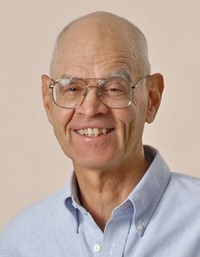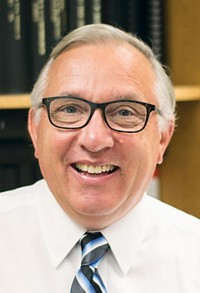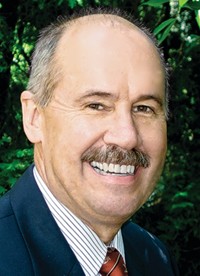Advertisement
Grab your lab coat. Let's get started
Welcome!
Welcome!
Create an account below to get 6 C&EN articles per month, receive newsletters and more - all free.
It seems this is your first time logging in online. Please enter the following information to continue.
As an ACS member you automatically get access to this site. All we need is few more details to create your reading experience.
Not you? Sign in with a different account.
Not you? Sign in with a different account.
ERROR 1
ERROR 1
ERROR 2
ERROR 2
ERROR 2
ERROR 2
ERROR 2
Password and Confirm password must match.
If you have an ACS member number, please enter it here so we can link this account to your membership. (optional)
ERROR 2
ACS values your privacy. By submitting your information, you are gaining access to C&EN and subscribing to our weekly newsletter. We use the information you provide to make your reading experience better, and we will never sell your data to third party members.
People
Herbert C. Brown Award For Creative Research In Synthetic Methods
Sponsored by the Purdue Borane Research Fund and the Herbert C. Brown Award Endowment
by Bethany Halford
January 4, 2010
| A version of this story appeared in
Volume 88, Issue 1
In the 40 years since he earned his doctoral degree, Larry E. Overman has racked up an impressive number of accolades. But winning the award named for Nobel Laureate Herbert C. Brown is of particular significance. "He was someone that I vastly admired for his contributions to chemistry," Overman says. In fact, he points out, one of his earliest projects as an assistant professor used a mercury reagent developed by Brown.
Like Brown, Overman has established his reputation as a scientist through the development of new synthetic methods. He boasts more than 340 publications, including the total synthesis of more than 80 complex natural products. "I think the thing that is characteristic of what we've done is to explore new methods of synthesis and use these methods to tackle very complex structures," Overman explains. "As soon as we've developed a new method, we want to see how it performs with complex structures. That's the only way you learn what the method's limitations are."
Overman began his study of chemistry at Earlham College in Richmond, Ind. He earned a doctoral degree from the University of Wisconsin in 1969, working with Howard W. Whitlock Jr. A postdoctoral fellowship with Columbia University's Ronald Breslow followed. In 1971, Overman joined the faculty at the University of California, Irvine, where, at age 66, he now holds the title Distinguished Professor of Chemistry.
Highlights among the many advances in synthetic methodology to come out of Overman's lab include the asymmetric Heck reaction, the intramolecular Heck reaction for constructing complex ring systems, and the tethered Biginelli reaction. Overman also holds a coveted distinction among synthetic chemists—he has his own named reaction, the Overman rearrangement.
"Larry Overman's premier contributions to synthetic organic chemistry represent a remarkable and productive union of synthetic methodology, mechanistic insights, and total synthesis of complex natural products," says Scott D. Rychnovsky, Overman's colleague at UC Irvine. "The creativity evident in the work, his ability to develop reactions and apply them to the construction of complex molecules, and the broad impact of his work on the field of synthesis are truly impressive."
"Over the years his selection of problems has been inspiring, usually reflecting creative insight into areas of opportunity that served to define future directions of the field and precipitate interest from others," adds Stanford University's Paul A. Wender. "Great syntheses arise from an understanding of structure and mechanism, and Overman has demonstrated a mastery of these elements in his efforts."
In addition to his research skills, Overman's colleagues note that his creativity and ability to inspire also extend to his skills as a mentor—a role that he particularly relishes. "The greatest joy is the opportunity to work with young people at a very important time in their lives," he says. Even so, Overman doesn't have any special advice to offer. "How students really learn is by observing how science is conducted in your lab," he notes. "That's a hundred times more important than anything you might say."
Overman will present the award address before the Division of Organic chemistry.






Join the conversation
Contact the reporter
Submit a Letter to the Editor for publication
Engage with us on Twitter